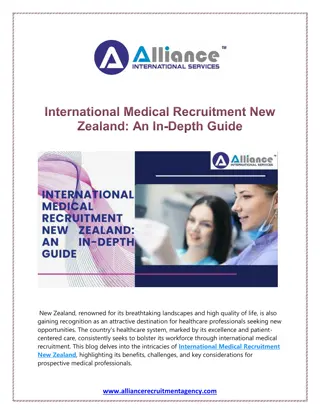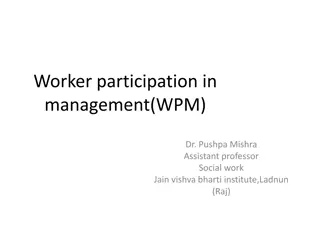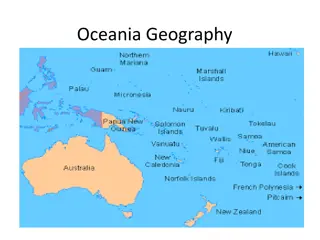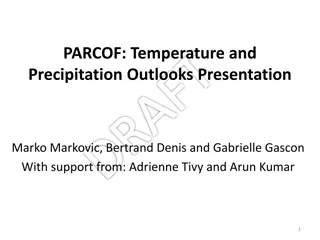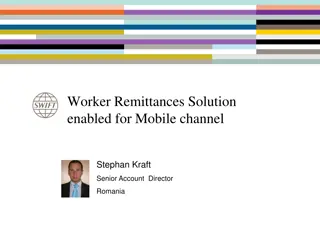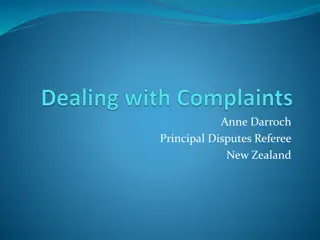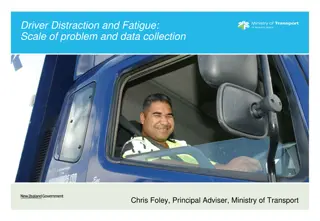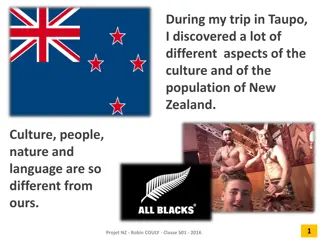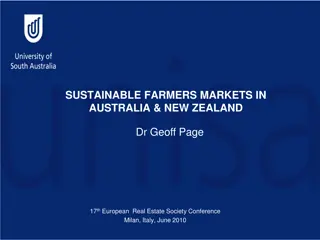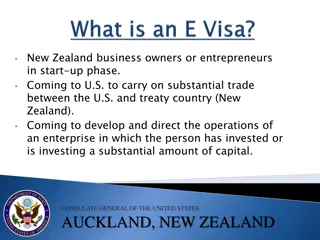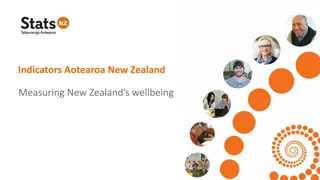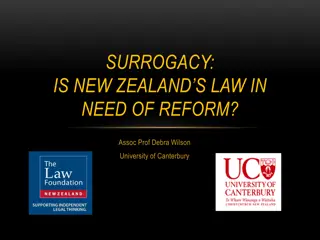Seasonal Worker Programs in Australia and New Zealand: Challenges and Opportunities
Seasonal worker programs in Australia and New Zealand play a crucial role in benefiting workers, employers, and economies. However, Papua New Guinea faces challenges in accessing these opportunities due to factors like urban bias and limited employer interest. Strategies to increase PNG's participation include revising recruitment criteria and involving trusted intermediaries for smoother transitions.
Download Presentation

Please find below an Image/Link to download the presentation.
The content on the website is provided AS IS for your information and personal use only. It may not be sold, licensed, or shared on other websites without obtaining consent from the author.If you encounter any issues during the download, it is possible that the publisher has removed the file from their server.
You are allowed to download the files provided on this website for personal or commercial use, subject to the condition that they are used lawfully. All files are the property of their respective owners.
The content on the website is provided AS IS for your information and personal use only. It may not be sold, licensed, or shared on other websites without obtaining consent from the author.
E N D
Presentation Transcript
How is Australia & New Zealands Seasonal How is Australia & New Zealand s Seasonal Workers Programs performing & what PNG Workers Programs performing & what PNG can do to lift its numbers? can do to lift its numbers? Richard Curtain Development Policy Centre, ANU PNG Update, 14 June 2018
Seasonal workers programs & triple win benefits for workers and their families, benefits for employers, and wider benefits for the economies involved
Key question How can Papua New Guinea gain more of the jobs available in Australia and New Zealand for short-term seasonal work
Numbers of workers in both Australian & New Zealand programs
Numbers of PNG workers in Australian & New Zealand programs
The relative share of workers from Tonga & Vanuatu in Australia by year
The relative share of workers from Vanuatu & Tonga in New Zealand by year
The situation in PNG The methods used by which Papua New Guinea has selected seasonal workers has limited employer interest in recruiting from PNG Many in the Work Ready Pool said they were from rural areas but in fact many were residents in urban areas. Year 10 requirement and emphasis on English has led to urban bias. PNG government has the sole power to initially select workers with employers having the final say. Recruitment agents not allowed. However, employers prefer to use a trusted intermediary who knows the background of the workers eg now living and working in a village
Alternative approaches Role of labour attach or paid coordinator in Australia as a key contact person with and for employers Direct engagement with employers in PNG eg Conference in Dili with employers Selection of workers in rural areas, as Fiji does Special support to connect with new Australian employers: the Boost Program in Solomon Islands
Alternative approaches Women in Agriculture Pilot Project (WiA) Five women from Jiwaka Province are the first group of women to travel to Australia under the Pilot program. The women have been selected by an intermediary because they experienced farmers who grow vegetables. An initial barrier overcome was the Year 10 requirement for workers. The upfront costs are significant. K2,100 for one way airfare, medical visa assessment, passport and two weeks accommodation in Port Moresby. Need for revolving fund to address this cost.
Boost Program in Solomon Islands The program funds for up to two years the Honiara- based Pasifiki HR to employ a coordinator based on the east coast in Australia. The coordinator s role is to promote Solomon Islander workers to Australian employers, develop relationships of trust, identify the demand for SWP workers and select workers who meet employer requirements.
Conclusion The examples of Timor-Leste, Fiji and Solomon Islands show that active policy intervention is needed to improve Papua New Guinea s chances of winning more short-term seasonal work from Australia and New Zealand. This policy intervention requires a focus on improving the recruitment process, from the setting up links with employers in Australia to the sourcing workers from rural areas and engaging with supportive communities to ensure that workers have the skills and commitment to make the most of the opportunities available.


